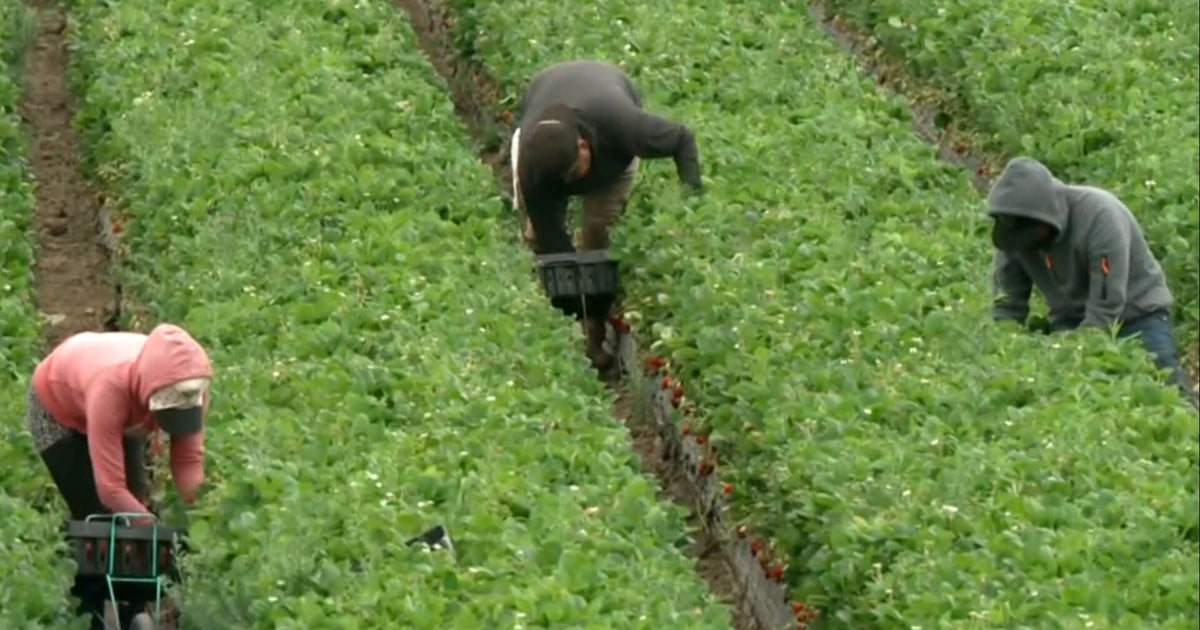In a new twist in immigration policy enforcement, the Trump administration has once again shifted its strategy concerning immigration roundups, deciding to reintroduce them in a variety of locations such as hotels, restaurants, and farms. This decision comes merely days after these actions were ostensibly halted, adding another layer of complexity and unpredictability for immigrant workers across sectors frequently filled by this demographic.
The reimplementation of these raids has rekindled fears among the immigrant community and has thrust them back into a state of uncertainty and anxiety. To understand the direct impact of these renewed enforcement efforts, Adam Yamaguchi has engaged with several workers in California, a state known for its significant immigrant population and dependence on their labor, particularly in the agricultural and service industries.
The conversations Yamaguchi had with these workers shed light on the personal and collective apprehensions permeating their communities. Many expressed a sense of betrayal and frustration, as the brief suspension had given them a fleeting glimpse of hope that the administration might be easing its hardline stance on immigration.
One restaurant worker, who wished to remain anonymous for fear of reprisal, shared how the announcement has drastically affected their sense of security. “We started to feel a little relief when they said the raids were stopping. Now, it’s all back, and it feels like you’re always looking over your shoulder,” they said. This sentiment was echoed by others who also noted how disruptive the raids can be to their daily lives and the constant pressure of potentially being separated from their families without warning.
Moreover, Yamaguchi’s interviews highlight the broader implications of such enforcement on business operations and the local economy. Owners and managers in sectors reliant on immigrant labor spoke about the difficulty of maintaining a stable workforce under the shadow of these raids. A farm owner elaborated on how the uncertainty not only affects the workers but also the entire supply chain and ultimately the consumers, as disruptions can lead to decreased productivity and increased prices.
This renewed policy enforcement comes amid ongoing debates over immigration reform. Supporters of the administration’s approach argue that these measures are necessary to enforce the law and secure jobs for American workers. However, critics claim that such strategies are not only disruptive but also inhumane, as they instill fear among communities, separate families, and often target individuals who have been contributing members of society for years.
Several advocacy groups have ramped up their efforts in response to the latest announcements, organizing community forums, legal aid sessions, and other support activities to equip the immigrant population with the knowledge and resources to protect themselves if they are caught up in one of these raids.
Legal experts point out that while immigration law is a complex and often contentious area, the manner in which raids are conducted frequently raises legal and ethical questions. Issues such as due process violations and racial profiling come to forefront, complicating the narrative around what constitutes fair and effective enforcement of immigration laws.
Yamaguchi’s report included insights from a legal analyst who indicated that sudden policy reversals like this one can often lead to hasty or poorly organized raids, which not only undermines the purported goals of these actions but also damages trust in law enforcement entities. The analyst suggested that a more consistent and humane approach would likely yield better results in managing immigration issues.
Additionally, the social fabric of communities with high immigrant populations can be strained by such unpredictable enforcement actions. Schools, churches, and community centers — places that should be safe havens — often become zones of apprehension, as documented and undocumented immigrants alike worry about the possibility of encountering immigration officers.
In this volatile climate, Yamaguchi’s reporting from California serves as a poignant reminder of the human aspects of public policy decisions. Through his dialogue with workers, business owners, legal experts, and advocates, a multi-faceted picture emerges, one that reflects complexity, urgency, and a need for thoughtful discourse and action concerning immigration policy and enforcement.
In conclusion, as the Trump administration oscillates in its approach to immigration enforcement, the ripple effects are felt deeply in communities across the country. The uncertainty and fear that immigration raids foster among immigrant populations can have lasting impacts on individuals, families, and communities. Moreover, the economic repercussions on sectors dependent on immigrant labor are non-negligible, indicating the broader societal implications of such enforcement tactics. As discussions continue and policies evolve, the nation remains divided over the path forward in dealing with immigration, seeking a balance between enforcement and empathy.









